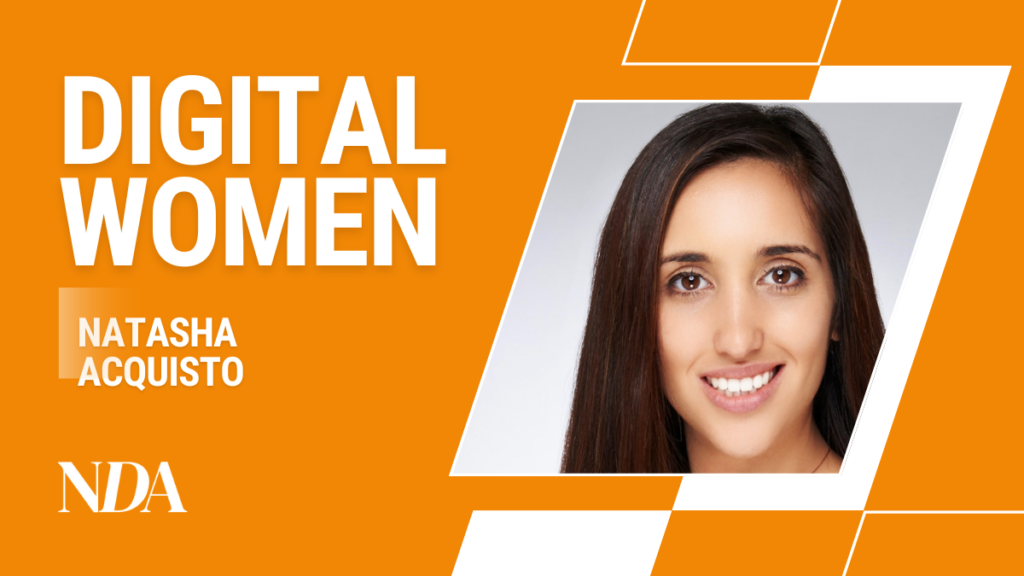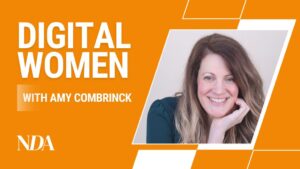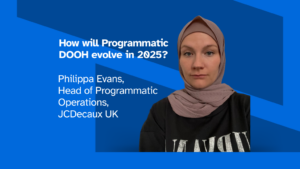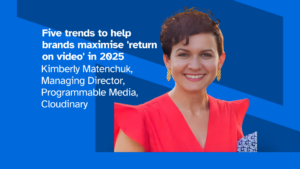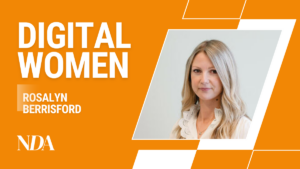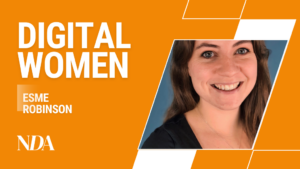Natasha Acquisto is Head of Innovation and Partnerships at Metro. In her role, she is responsible for driving new commercial opportunities, developing media-first innovations, and creating award-winning campaigns. Acquisto was a member of The Media Leader’s Future 100 Class of 2023.
What is the biggest opportunity for women in your sector of the digital industry today?
I look at the digital environment and see opportunity everywhere. It’s such a fast-moving sector with innovations and developments happening constantly. I have an interesting view of the industry too – working at Mail Metro Media there are several very savvy women in senior positions across the business. Our company culture is dynamic and fast-paced, which I find very stimulating. We are given a lot of support when it comes to exploring a subject or heading out into the industry to understand how new developments might benefit our brands or our business, you’re very much encouraged to go and expand your thinking. It’s one of the reasons why we continue to develop new ad formats and new data products. We strive to push creative boundaries and offer our clients best-in-class solutions.
I also love our capacity to reach out and assist others – Metro in particular is very active when it comes to social awareness campaigning. At the moment we have a year-long dedication to raising awareness of violence against women under our This Is Not Right campaign, which is an astonishing dedication from a newsbrand to keeping such an important issue in the spotlight. We’re also supporting Formula for Change in partnership with the charity Feed, an award-winning initiative encouraging changing current legislation on infant formula to make it more accessible for those on lower incomes. I find that these initiatives abound in digital, where you can find so many motivated and creative people who are driven to make a positive difference.
What is the biggest challenge to you as a woman in the digital industry, and how are you overcoming it?
Things move at a rapid rate in both publishing and digital. So, if you need to take time off for an extended period like maternity leave (for example), it may feel quite daunting to get back into the swing of things. At least I felt that way, as I returned from my second mat leave to a business-wide restructure.
As part of the reorganisation, I was put into a new role as Head of Innovation and Partnerships for Metro and tasked with some challenging (but not impossible) profitability targets. We began operating from a 360 POV, merging print and online and offering cross-platform solutions. Part of this new role involves growing new revenue streams, actively monetising our content across Apple News and having a better understanding of product development to offer our clients impactful advertising solutions.
At first, I was filled with imposter syndrome, which can still crop up – especially when surrounded by tech-savvy AI wizards. I tackled this by being OK to ask questions I don’t know the answer to and realising that my skill set is having a curious and creative mind. It’s important to keep questioning why certain things are done in a certain way and seeing whether we could try a different approach to better the outcome. I don’t have to have all the answers, as my amazing colleagues likely will.
I think my time off may have given me a fresh perspective, as I was returning after a while, without having to break myself out of old habits – potentially. I believe in being comfortable with taking risks, thinking outside of the box, and trying new things. It’s OK for some of those things not to work out – there is always a valuable lesson to learn. I try to attend industry events and consume podcasts and books that will challenge my way of thinking and help me develop and grow new skill sets.
What three things could employer companies do to make the digital industry better for women?
One of the most important areas remains to promote from within as far as possible and ensure females who are in senior-level positions have the right attitude to impart a positive, diverse, and inclusive culture that supports all women. I’m also a big believer in equalised maternity and paternity leave, encouraging roles and responsibilities for childcare to be viewed and recognised as equal between parents. And finally, offering and supporting, flexible working hours so working parents can handle the juggle. Our organisation has done a lot in this space and introduced new support structures like implementing a menopause policy. These things are never static and need constant development, and we have a very active HR team looking at how we can grow.
What support structures and organizations are most important and effective to you as a woman in the digital industry?
Beyond our supportive internal HR team, I am lucky to be surrounded by many successful and ambitious women within our company and across multiple divisions. I find a lot of inspiration and drive comes from being fortunate enough to work closely with a very inspiring and supportive female Editor-In-Chief. I am also a big believer in learning from industrywide groups like Bloom Network, WACL, and NABS, outside of our own walls.
What is the biggest misconception about women in the digital industry?
There’s still a lot of room in the wider digital landscape for equal representation, whether that’s the gender balance or attracting diverse talent across ethnic groups or socio-economic backgrounds. Sometimes I think that the perception of digital being the domain of ‘the tech bros’ hinders that progress. There are a lot of talented people from a range of backgrounds and genders all around, and it’s well proven that women can flourish in this industry even if the dominant ‘personalities,’ who are held up as emblematic of the sector, are male. There’s a tendency for this to overshadow the incredible work and input from people throughout the digital ecosystem. I would love for us to start actively celebrating the small wins, positivity breeds positivity and together we can be the change we want to see.


